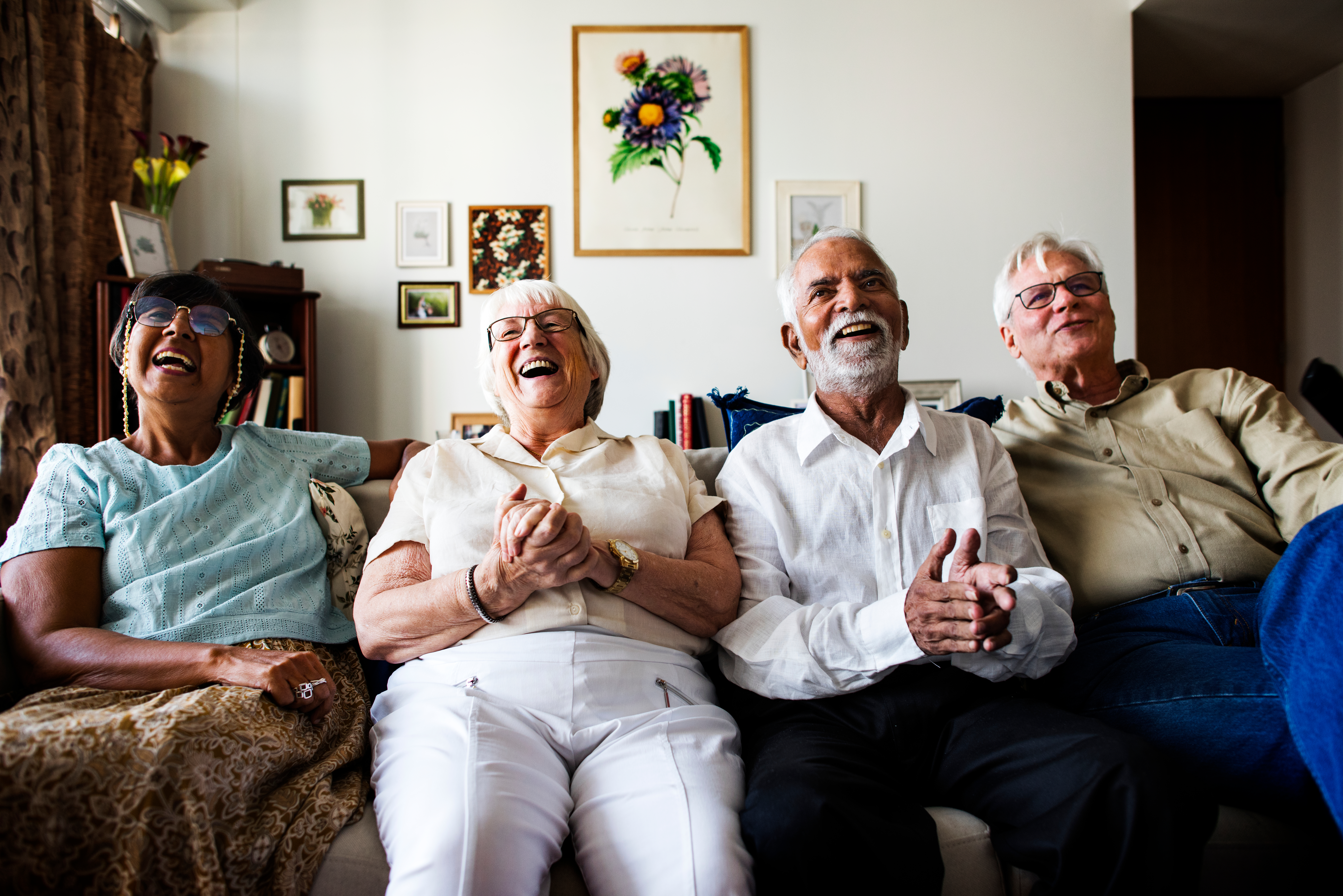
As we continue this series around the concepts of Parker Palmer’s Five Habits to Heal the Heart of Democracy, Rev. Bobbie McKay, Ph.D., reflects on the capacity to create community. We all need to feel that we belong. We all need to be appreciated and connected. Bobbie shares her experience of being welcomed into a new community this past year following a pandemic-related quarantine as she moved into an eldercare community following her husband’s death.
Historically, communities were gathering places for groups of people or were created to meet people’s particular needs. They were often organized around a common cause, providing help for a specific situation or population. Or they were geographical destinations for groups of people.
But our first community experiences take place in our family of origin, where we learn how to live and survive with others in the family system. Simply stated, firstborn children tend to receive the most responsibilities and expectations in the family and therefore operate in a leadership position. That role tends to express itself in other situations in later life beyond family relationships.
Last children appear to have less responsibility and, therefore, more freedom within the system. Middle children generally operate in the least difficult position in the family. We tend to unconsciously carry those familial roles into each community we join. (One of my favorite references about birth order is listed at the close of this paper.)
As we move outside our family, we continue to learn about community life in the neighborhood, in school, in our job situations, and in the multiplicity of groups in which we participate. Within those communities, If I am seen as a good leader and enjoy the role of a leader, I will generally seek to repeat that experience and likely succeed. If I am more reticent about being in the leadership limelight, I will generally look for a less responsible role in the community.
Different Communities
Until recently, communities tended to be service oriented, created to assist people or situations that needed help. But today, a growing number of communities are devoted to personal or spiritual growth. People are looking for opportunities for increased self-awareness as well as a commitment to helping others.
As our population ages, we are also trending toward building communities of older people seeking a living place that can provide medical assistance and personal growth, social interaction, and intellectual stimulation. People entering these communities are generally younger than in previous years and looking for a place where they can actively enjoy their lives in a community of like-minded others.
I recently entered an elder care community after my husband died. In this particular organization, most people live in cottages of 15 – 20 people, in individual apartments, with a common kitchen/dining room area for group meetings. It was my first experience living in a community outside of my family of origin and my own family. I had no idea what to expect.
Entering into Community
During my two-week quarantine (a new requirement for each new resident since COVID began), I noticed five or six people gathering every night in the common area to watch television. Their agenda was quite simple. They watched a television show or series they enjoyed; their leader took responsibility for the mechanics of viewing and selected the shows they watched. When the evening entertainment was finished, people returned to their apartments, with minimal dialogue.
After my fourteen days of quarantine were completed, I asked If I could join the nightly meetings. I was immediately and unconditionally accepted, no questions asked about who I was or my history before moving to our senior living arrangement. There were no behavioral rules for membership in this group. I could share or be silent. I could stay or leave. It was all up to me!
The opportunity to be a part of a group of people was a powerful gift after fourteen days of isolation and silence. My acceptance in the group was immediate and universal. I became a member because I came to share the evening agenda with others who were my neighbors. It was also fully understood that all neighbors in our cottage were included in these evening meetings.
Growing Together in Community
Over the next few months, I found myself increasingly looking forward to our nightly gatherings. I learned everyone’s names and a little history by simply listening, not by a designated sharing time. I let the group know that my grandson was dying of colon cancer and shared pictures of him and his wife and family. My television group became an immediate support system. My gratitude for each member of the group grew with each meeting. Their constancy was a miracle of care in this deeply painful situation in our family.
This community’s glue is found in the commitment of their leader to faithfully bring entertainment on television to the group every evening, seven days a week. The response of the community is their presence and their loyalty to the leader and any who want to share the time.
Commitment to Community
The spirit of the community is clearly expressed in their daily commitment to being together. Out of that commitment came opportunities to learn what is happening in the lives of others who live in this cottage, both within the nightly group and outside the group. That commitment is expressed in cards sent to people with problems of any kind or celebrating birthdays or holidays. A simple shared television event has created a community of genuine care and concern.
I am now a permanent member of this amazing group - meaning, I attend our meeting every evening as part of my daily routine. And, I wouldn’t miss a nightly meeting, regardless of the movie being shown unless I was too sick to attend!
*For more information about birth order and personality, “Birth Order Roles and Sibling Patterns in Individual and Family Therapy” by Margaret H. Hoopes and James M. Harper. Aspen Publishers, Inc., 1987.


